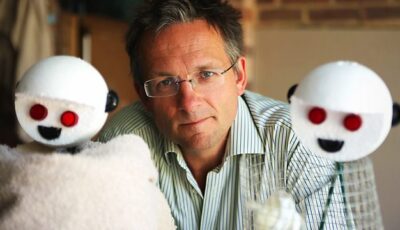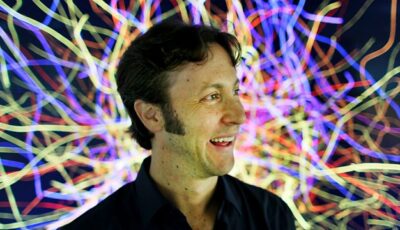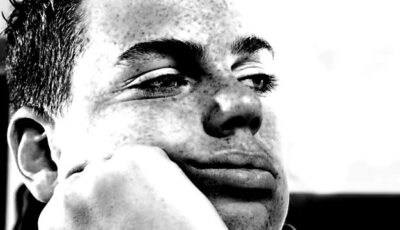Synopsis
When a young woman was brutally killed in an attack in New York in 1964, not one of 38 witnesses called for help. The case led to the naming of the phenomenon as Bystander Effect.
- Programme: Mind Changers
- Episode: Case Study: Kitty Genovese
- Channel: BBC Radio 4
- Broadcast year: 2008
- Psychology | Social Psychology | Helping behaviour | Piliavin
Licence: ERA Licence required
UK only
Staff and students of licensed education establishments only
Cannot be adapted
Add Notes
More clips from Mind Changers

The bystander effect | Mind Changers
The bystander effect | Mind Changers
The bystander effect and how fewer people than you might think intervene when they witness a crime taking place.

What happened to Kitty Genovese? | Mind Changers
What happened to Kitty Genovese? | Mind Changers
Details about the murder of Kitty Genovese and the 38 witnesses who did not intervene or call for help.

The bystander effect | Mind Changers
The bystander effect | Mind Changers
The bystander effect and how fewer people than you might think intervene when they witness a crime taking place.

What happened to Kitty Genovese? | Mind Changers
What happened to Kitty Genovese? | Mind Changers
Details about the murder of Kitty Genovese and the 38 witnesses who did not intervene or call for help.

The bystander effect | Mind Changers
The bystander effect | Mind Changers
The bystander effect and how fewer people than you might think intervene when they witness a crime taking place.

What happened to Kitty Genovese? | Mind Changers
What happened to Kitty Genovese? | Mind Changers
Details about the murder of Kitty Genovese and the 38 witnesses who did not intervene or call for help.

The bystander effect | Mind Changers
The bystander effect | Mind Changers
The bystander effect and how fewer people than you might think intervene when they witness a crime taking place.

What happened to Kitty Genovese? | Mind Changers
What happened to Kitty Genovese? | Mind Changers
Details about the murder of Kitty Genovese and the 38 witnesses who did not intervene or call for help.
More resources about Types of conformity

01: Mind Control | The Brain: A Secret History
01: Mind Control | The Brain: A Secret History
Michael Mosley traces the sinister ways science has been used to try to control our minds, finding that its pursuit has led to...

02: Emotions | The Brain: A Secret History
02: Emotions | The Brain: A Secret History
Dr Michael Mosley investigates how scientists have struggled to understand that most irrational and deeply complex part of our min...

03: Broken Brains | The Brain: A Secret History
03: Broken Brains | The Brain: A Secret History
Michael Mosley ends his look at the history of experimental psychology by exploring how experiments on abnormal brains can re...

4: The Watchful Web | The History Of Surveillance
4: The Watchful Web | The History Of Surveillance
Looks at how, when you surf the net or use a credit card, you leave a data trail as revealing as an animal’s spoor, compris...

5: Why Do I Need You? | The Brain with David Eagleman
5: Why Do I Need You? | The Brain with David Eagleman
This episode looks at how the human brain relies on other brains to thrive and survive.

6: Who Will We Be? | The Brain with David Eagleman
6: Who Will We Be? | The Brain with David Eagleman
Dr Eagleman journeys into the future, and asks what's next for the human brain and for our species.

Can the power of positive thought turn ballerinas into basketball players? | The People Watchers
Can the power of positive thought turn ballerinas into basketball players? | The People Watchers
An experiment showing how powerful words and 'pep talk' can be to motivate i...

Episode 6 | The People Watchers
Episode 6 | The People Watchers
What is the psychology of queuing? Do people perform better at sport if they are given encouragement? And how long does it take to learn how ...

Playing the Game: Taking Risks | The Learning Zone
Playing the Game: Taking Risks | The Learning Zone
Program about taking risks with children, growing up, learning when to develop and when to encourage the child to ''take a...

Risk taking and stigma | The Life Scientific
Risk taking and stigma | The Life Scientific
Listen to the important work being carried out on teenage brain development and risk taking, especially the efforts needed to re...

S11E1: Changing Minds | Child of Our Time
S11E1: Changing Minds | Child of Our Time
Professor Robert Winston and professor Tanya Byron discover how teenagers' changing brains means that what they choose to do at six...

S1E2 | The Human Zoo
S1E2 | The Human Zoo
Michael Blastland explores the way human beings think, behave and make decisions. The status quo bias - do you prefer things, whether personal or politi...

Sarah-Jayne Blakemore on teenage brains | The Life Scientific
Sarah-Jayne Blakemore on teenage brains | The Life Scientific
Professor Sarah-Jayne Blakemore talks to Jim Al-Khalili about her research on the developing teenage brain.

Teenage Brain | The Infinite Monkey Cage
Teenage Brain | The Infinite Monkey Cage
Brian Cox and Robin Ince are joined by Rory Bremner, Prof Sarah-Jayne Blakemore and Prof Matthew Cobb to discover the science behind...

The bystander effect | Mind Changers
The bystander effect | Mind Changers
The bystander effect and how fewer people than you might think intervene when they witness a crime taking place.

The Mystery of the Teenage Brain | The Curious Cases of Rutherford & Fry
The Mystery of the Teenage Brain | The Curious Cases of Rutherford & Fry
Hannah and Adam investigate the strange goings on in the bodies and brains of teens as they embark o...

The Slumber Games | The Investigation
The Slumber Games | The Investigation
BBC Scotland investigates new research suggesting that modern technology is disrupting teenagers' body clocks, resulting in poor health...

What happened to Kitty Genovese? | Mind Changers
What happened to Kitty Genovese? | Mind Changers
Details about the murder of Kitty Genovese and the 38 witnesses who did not intervene or call for help.
